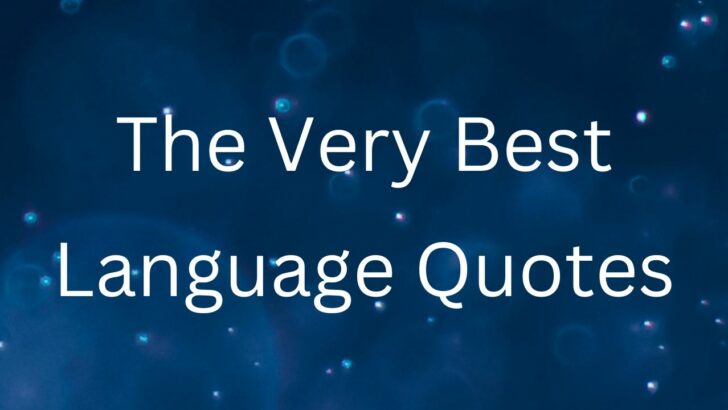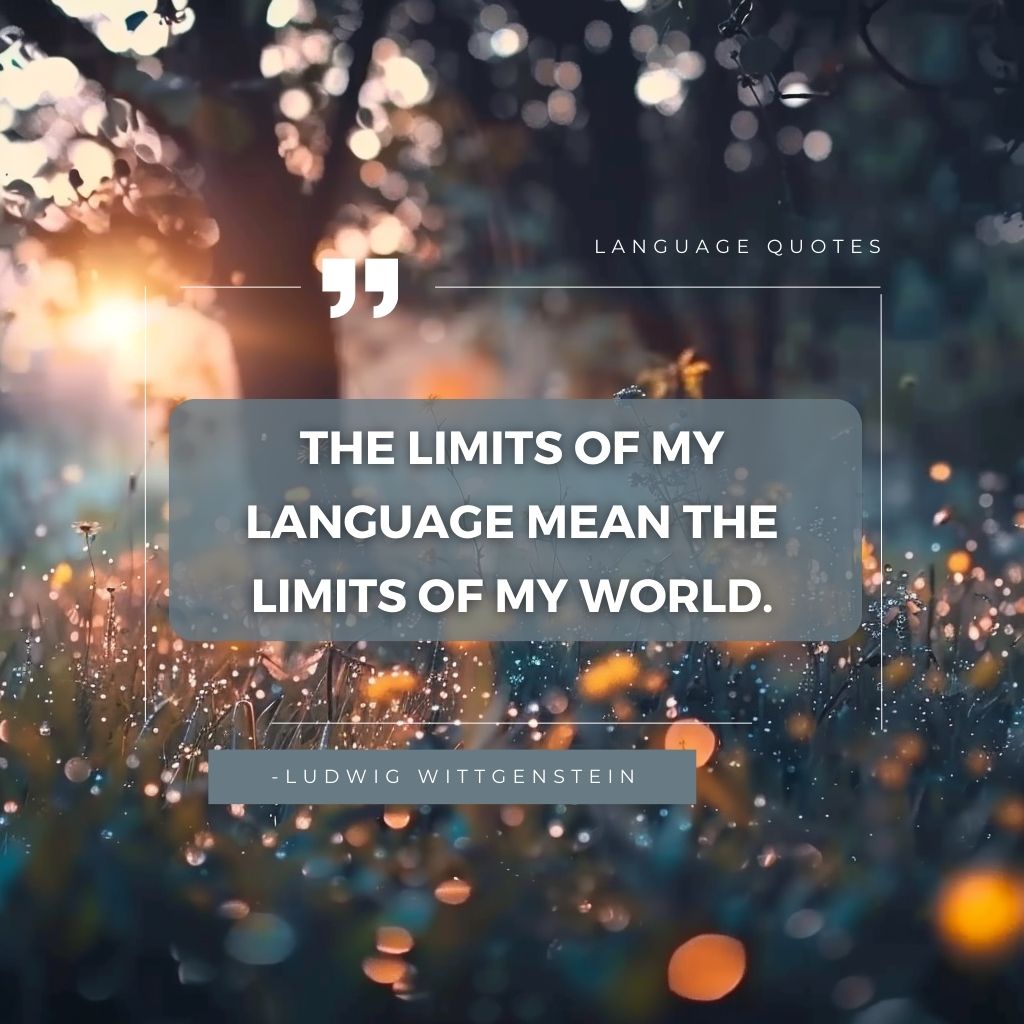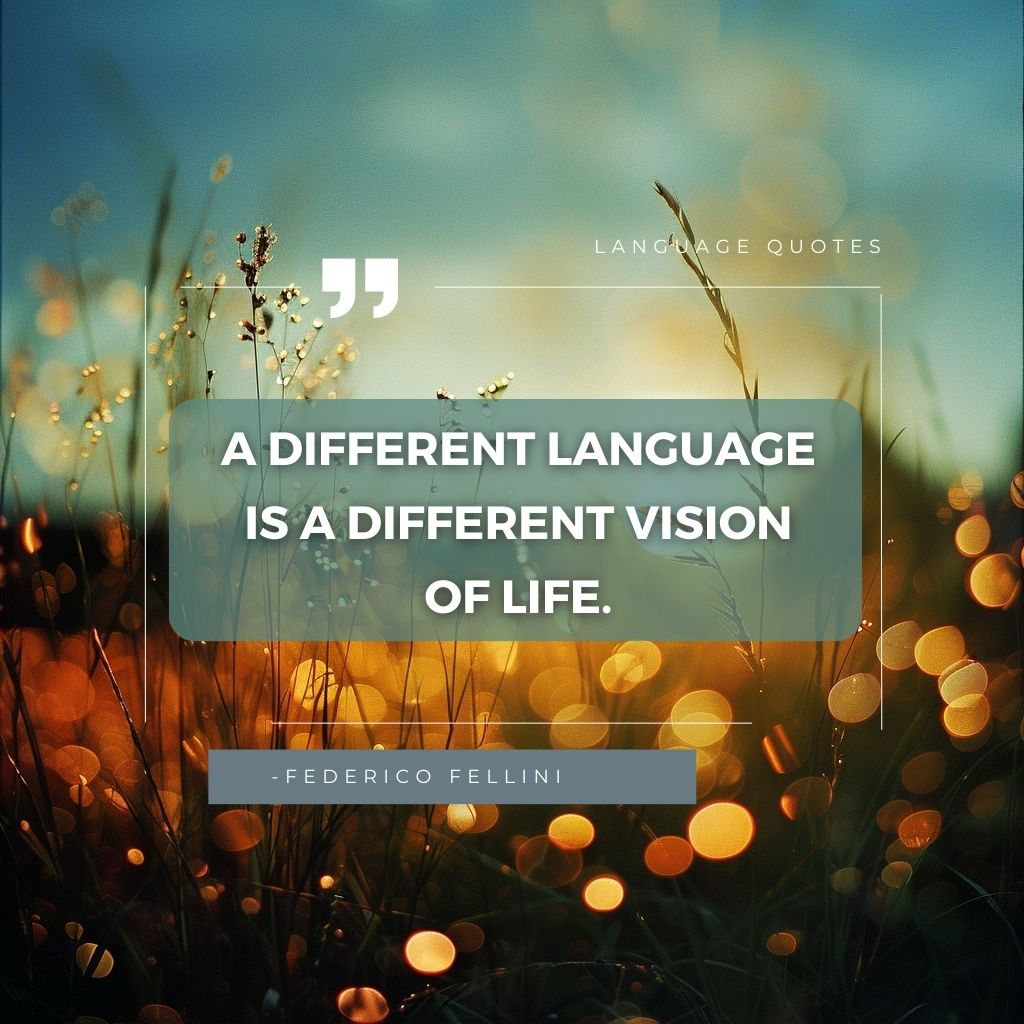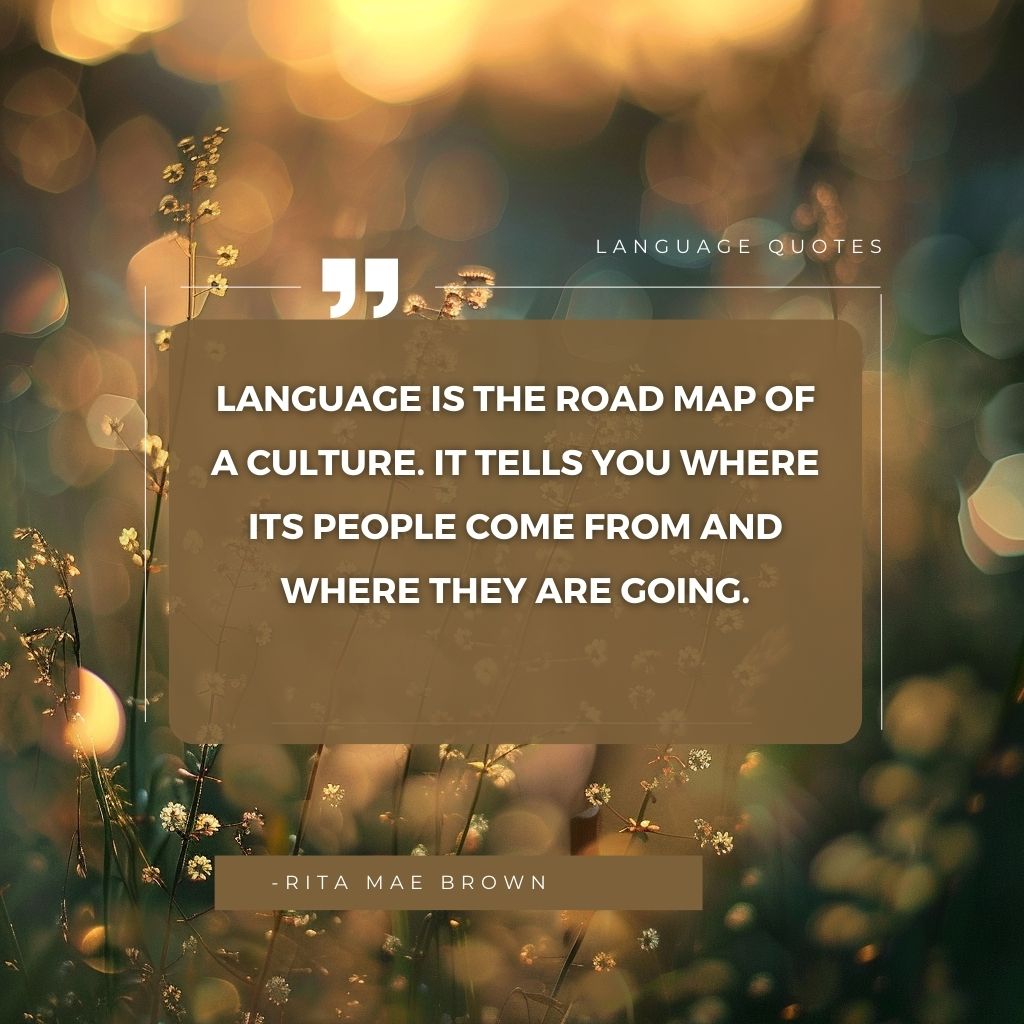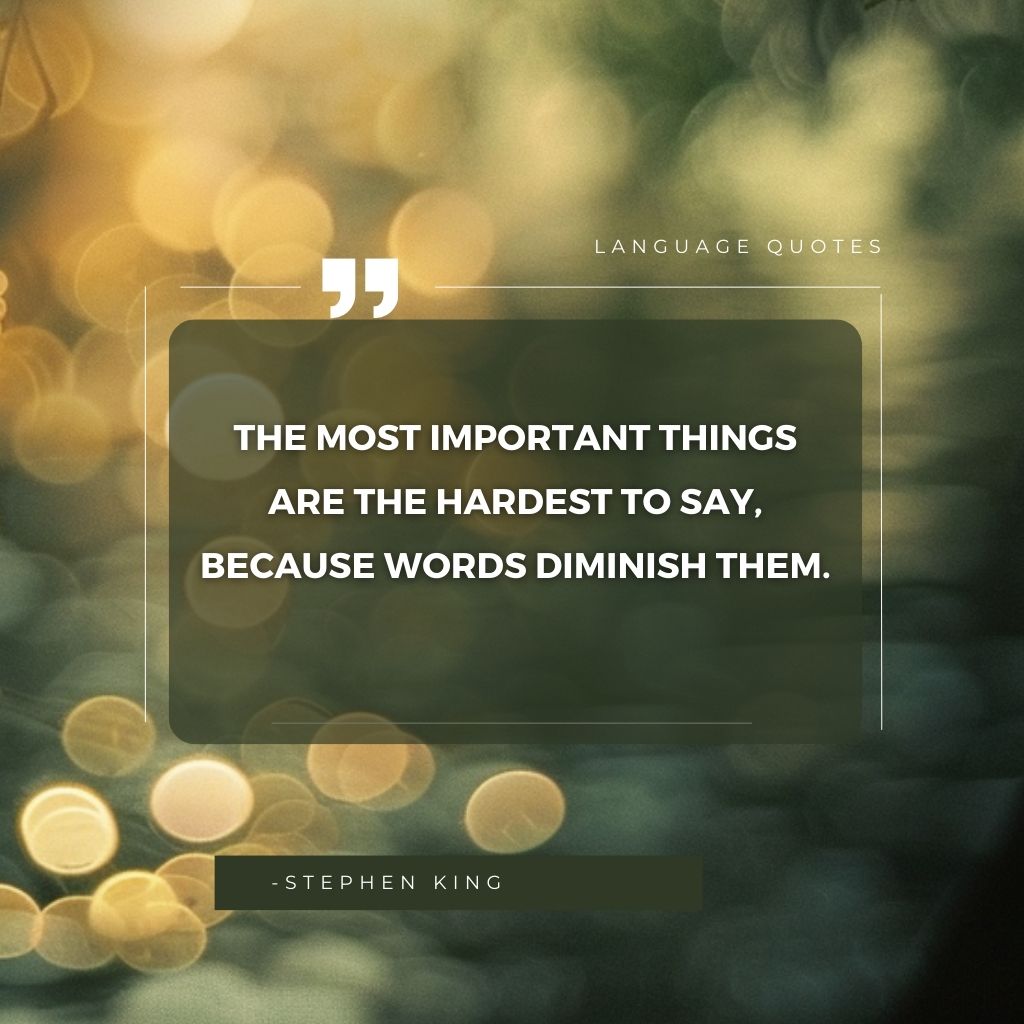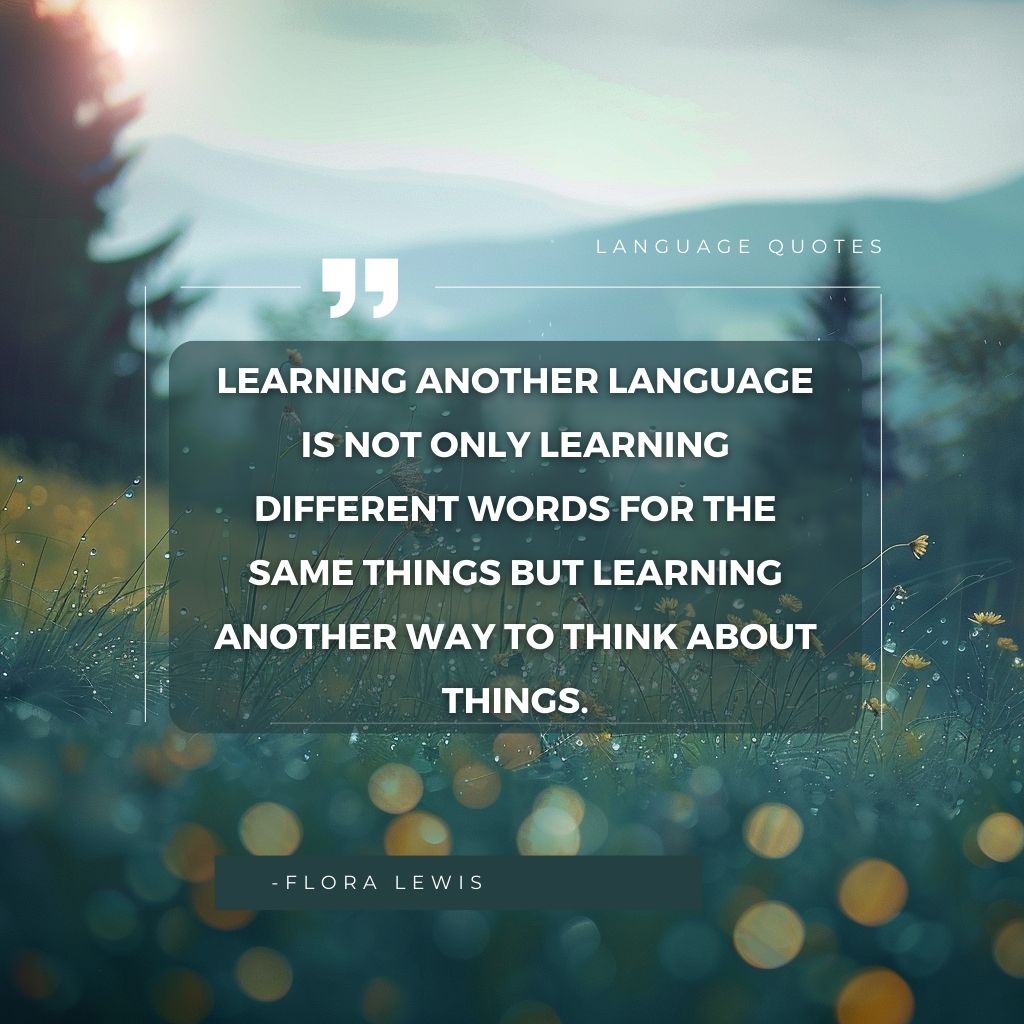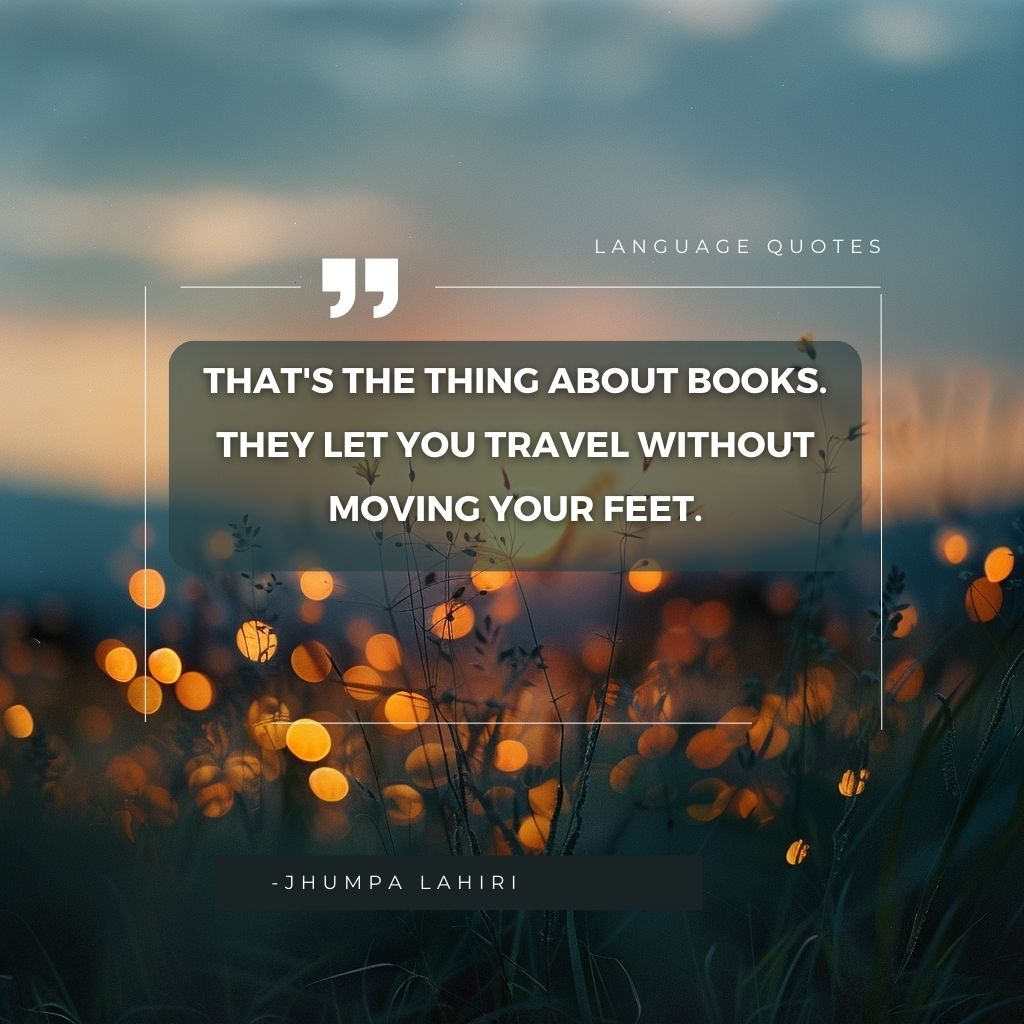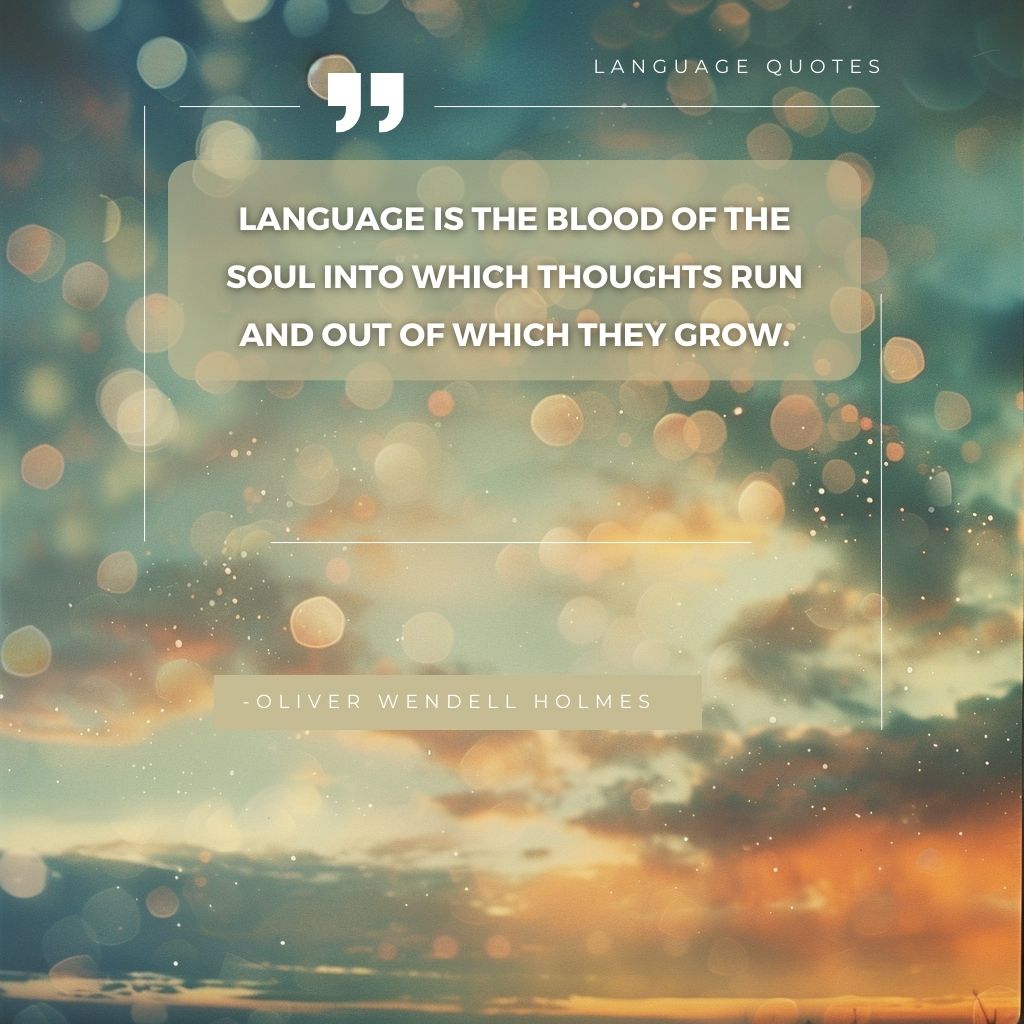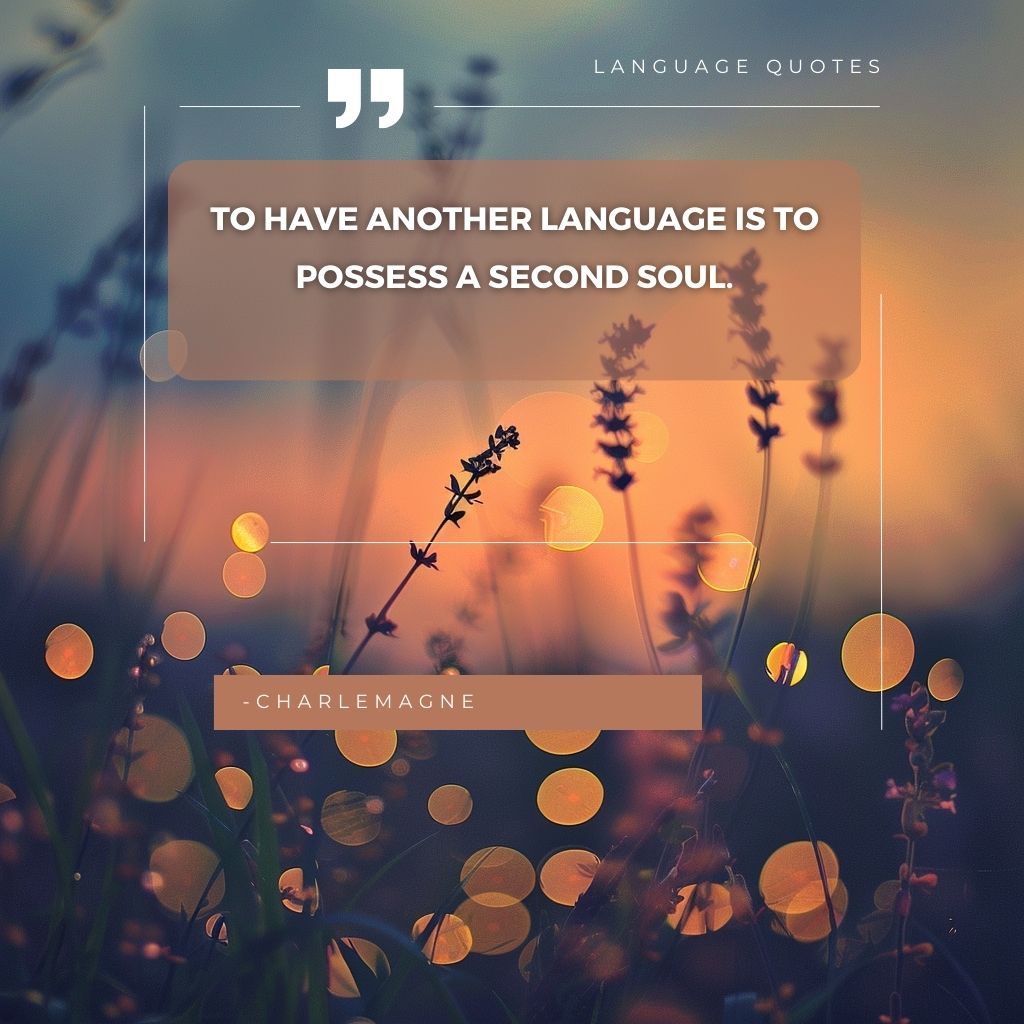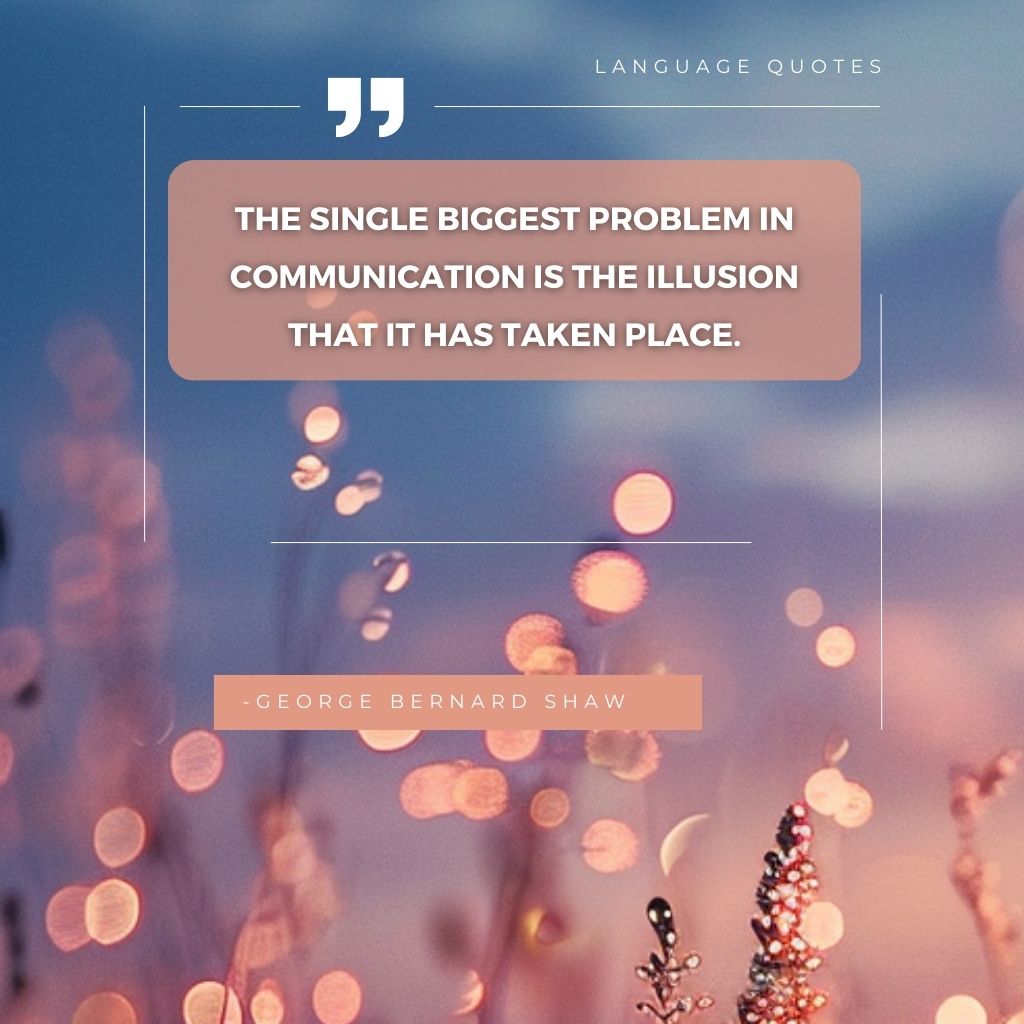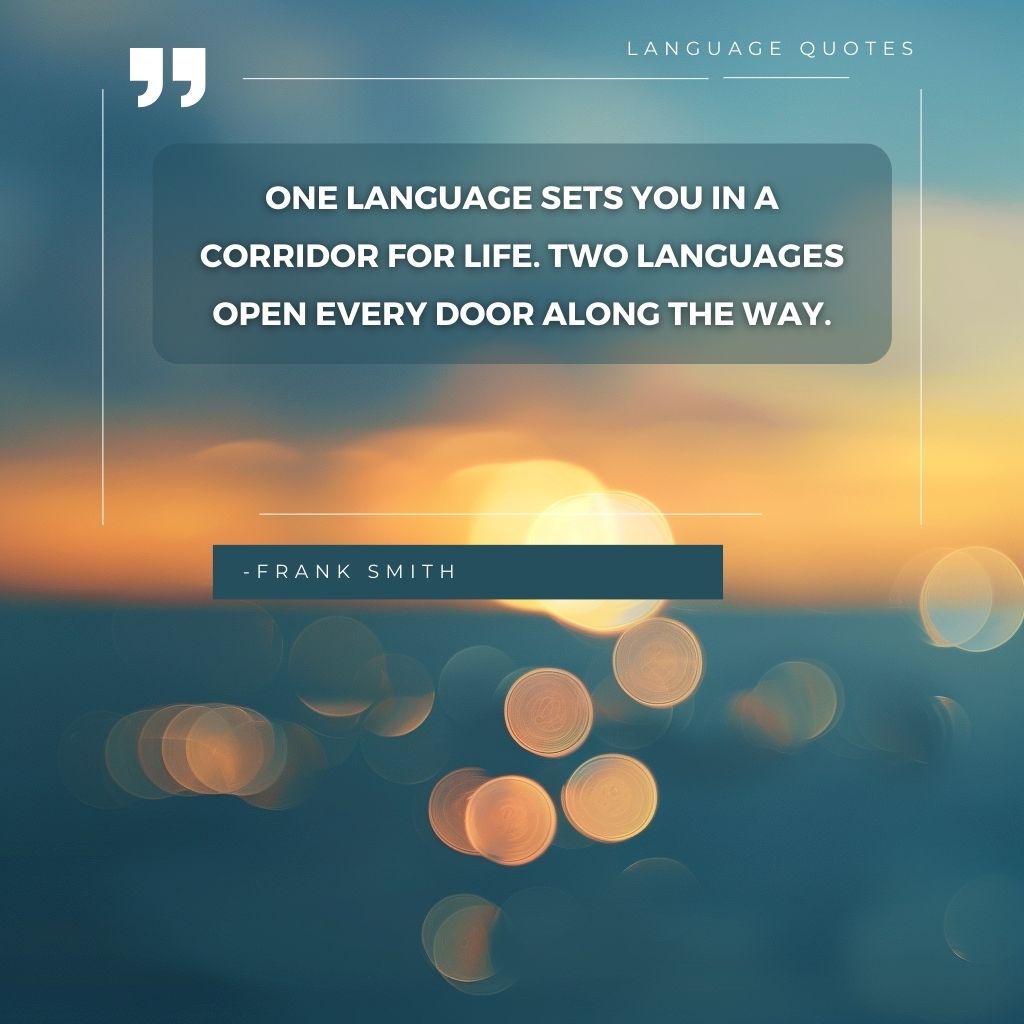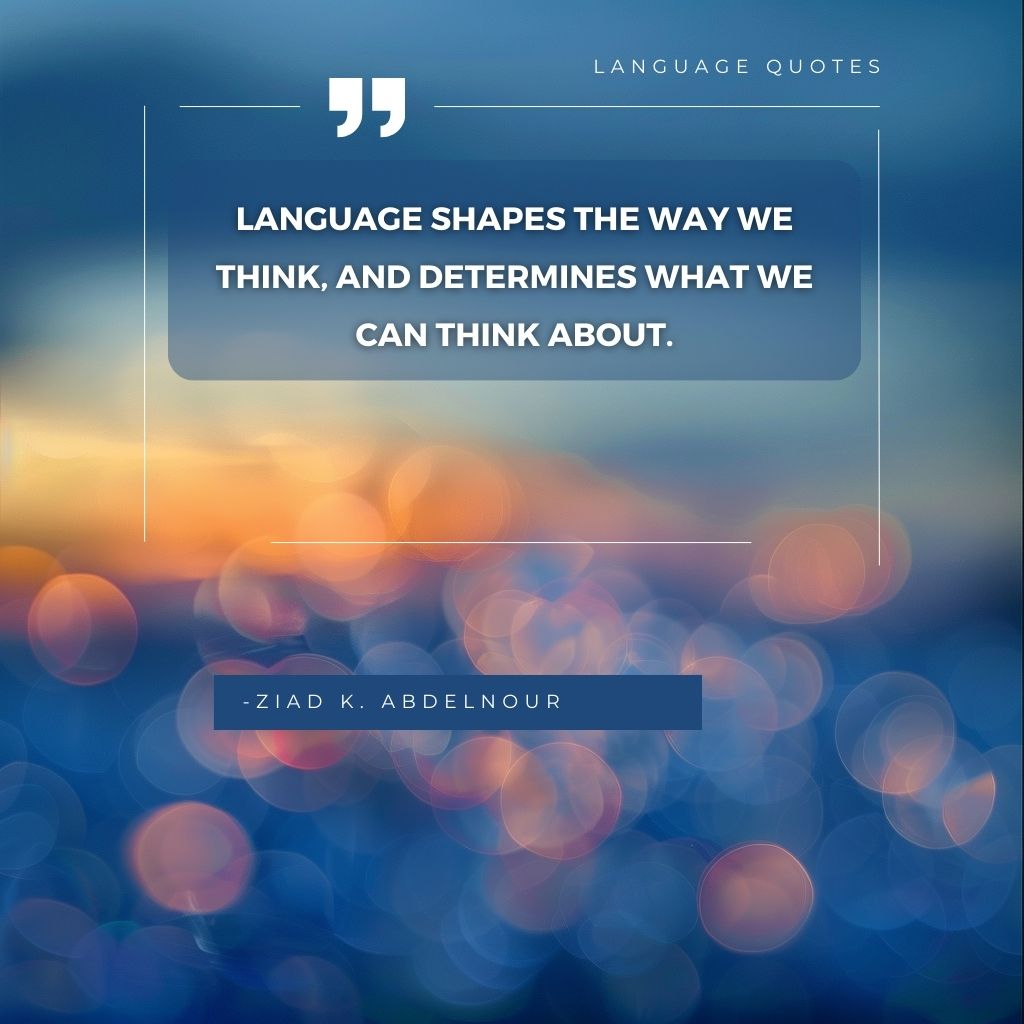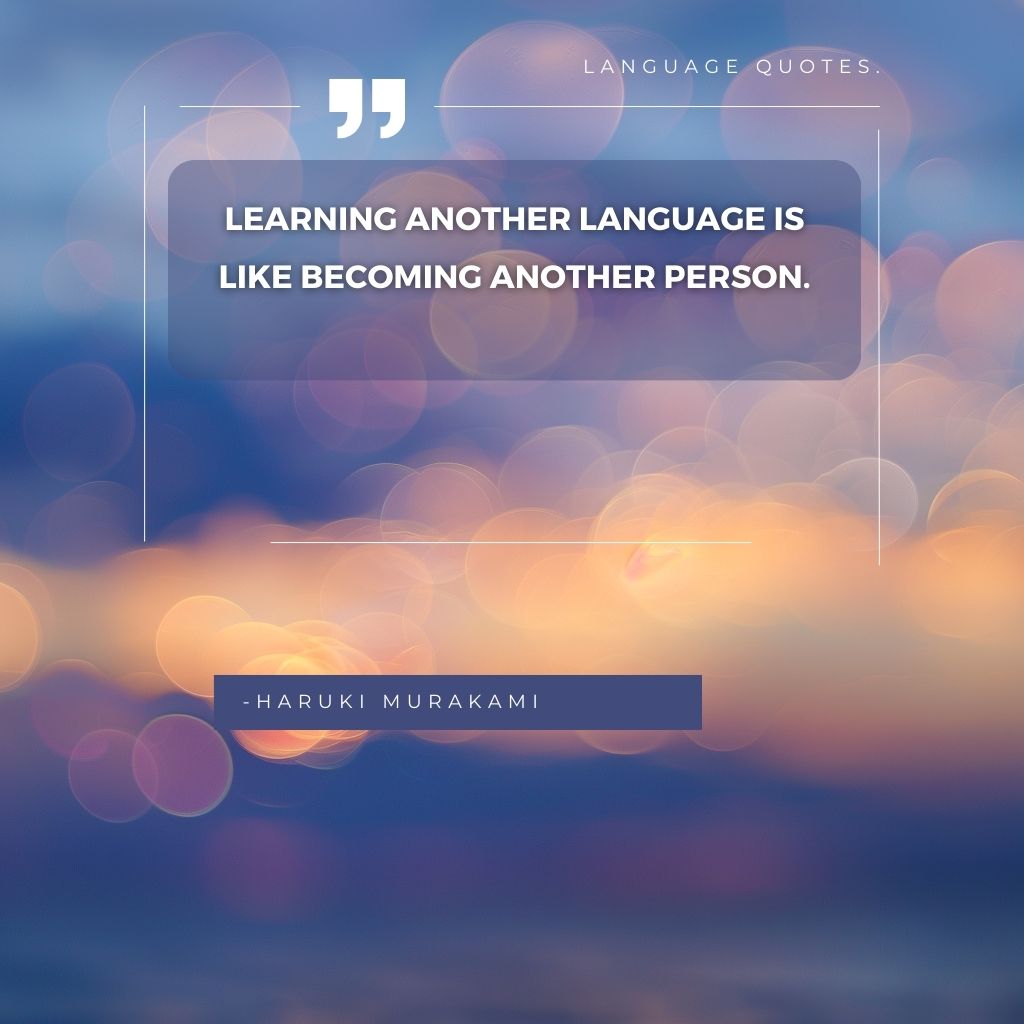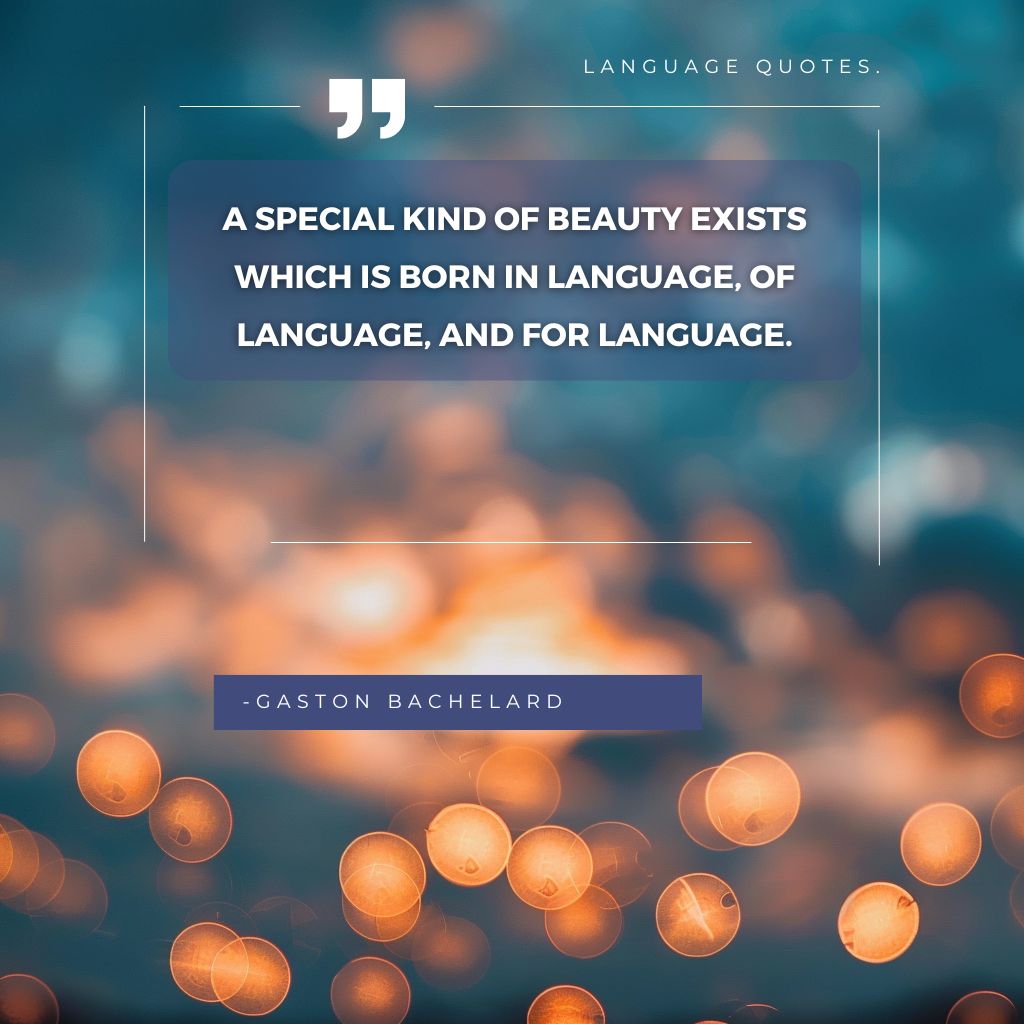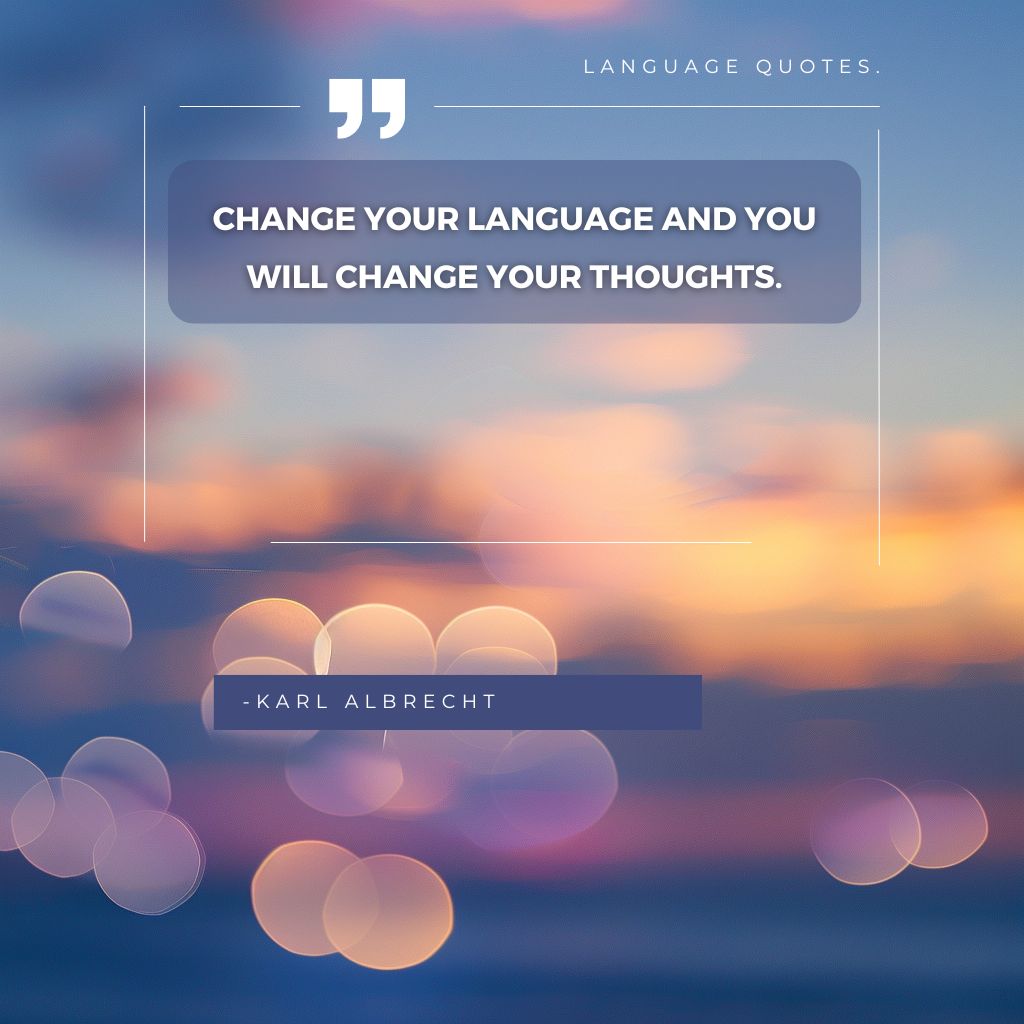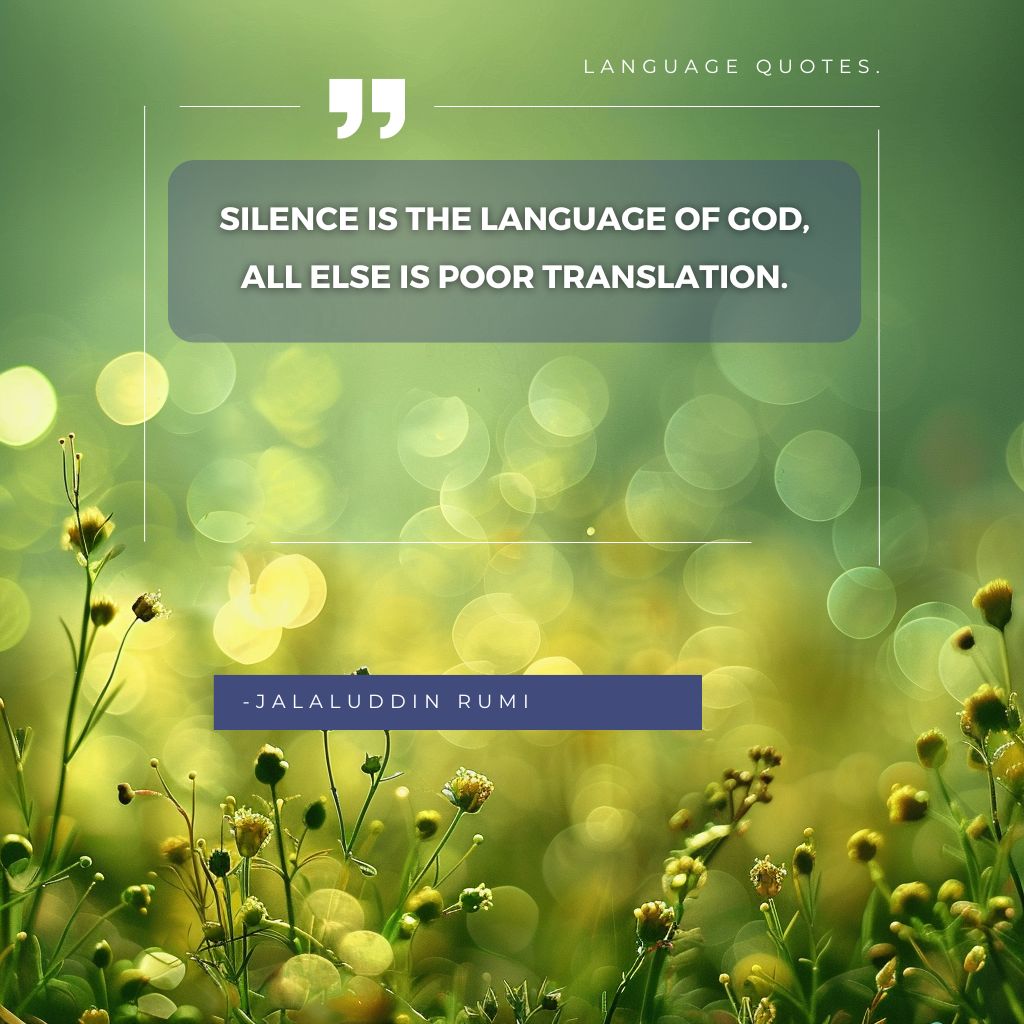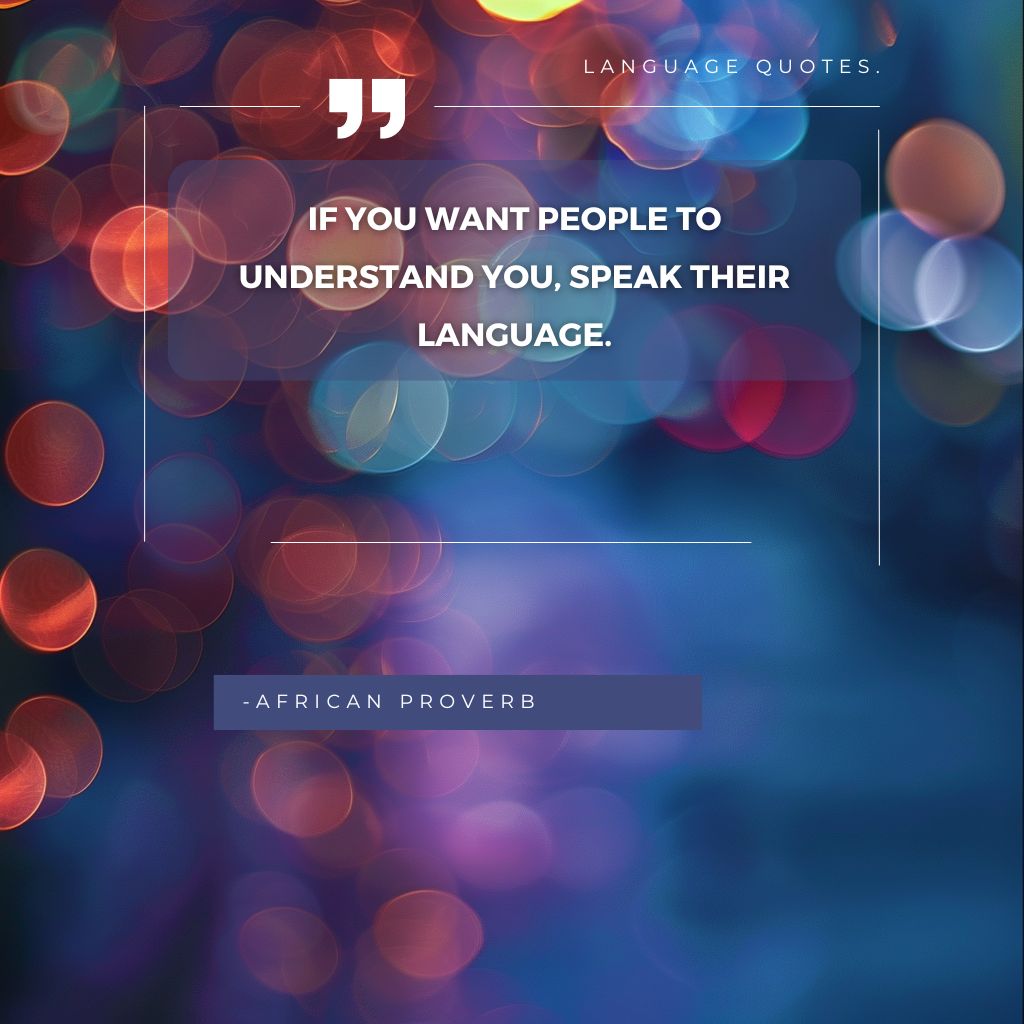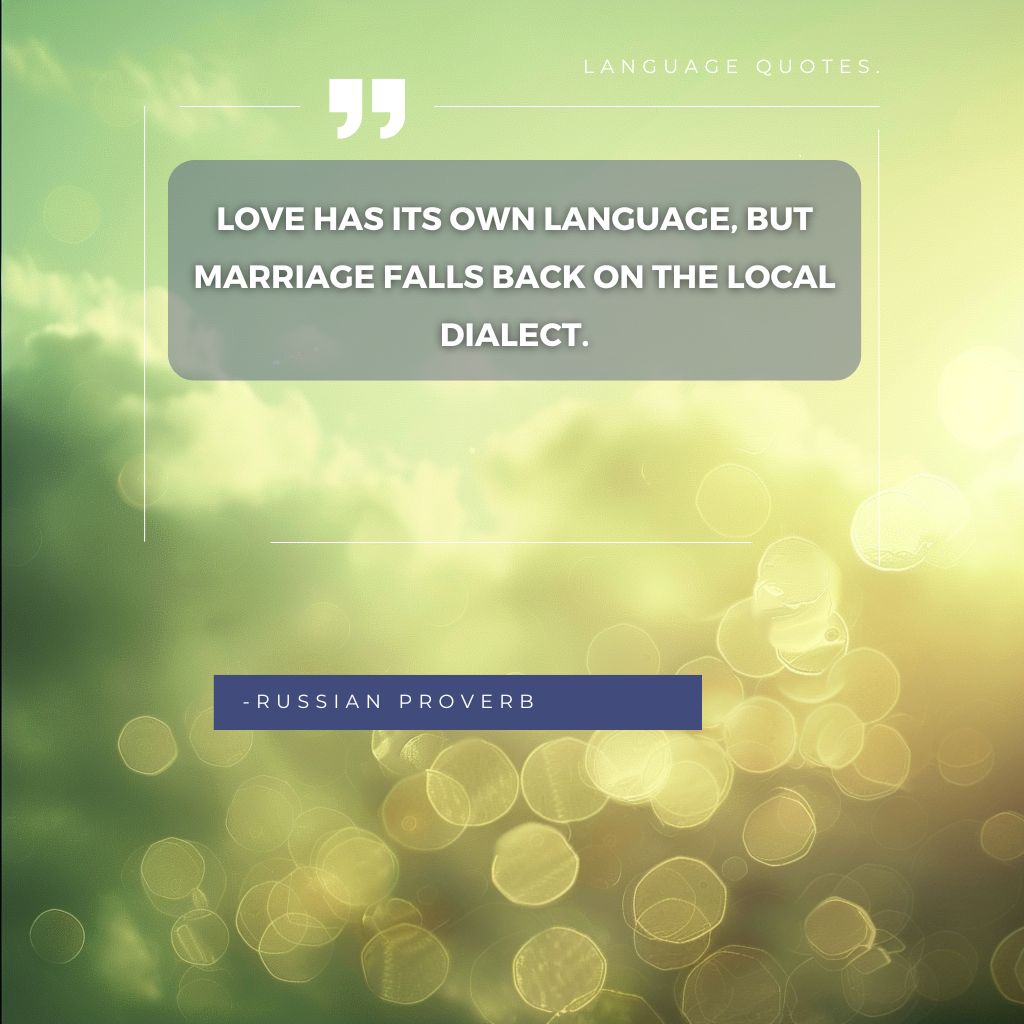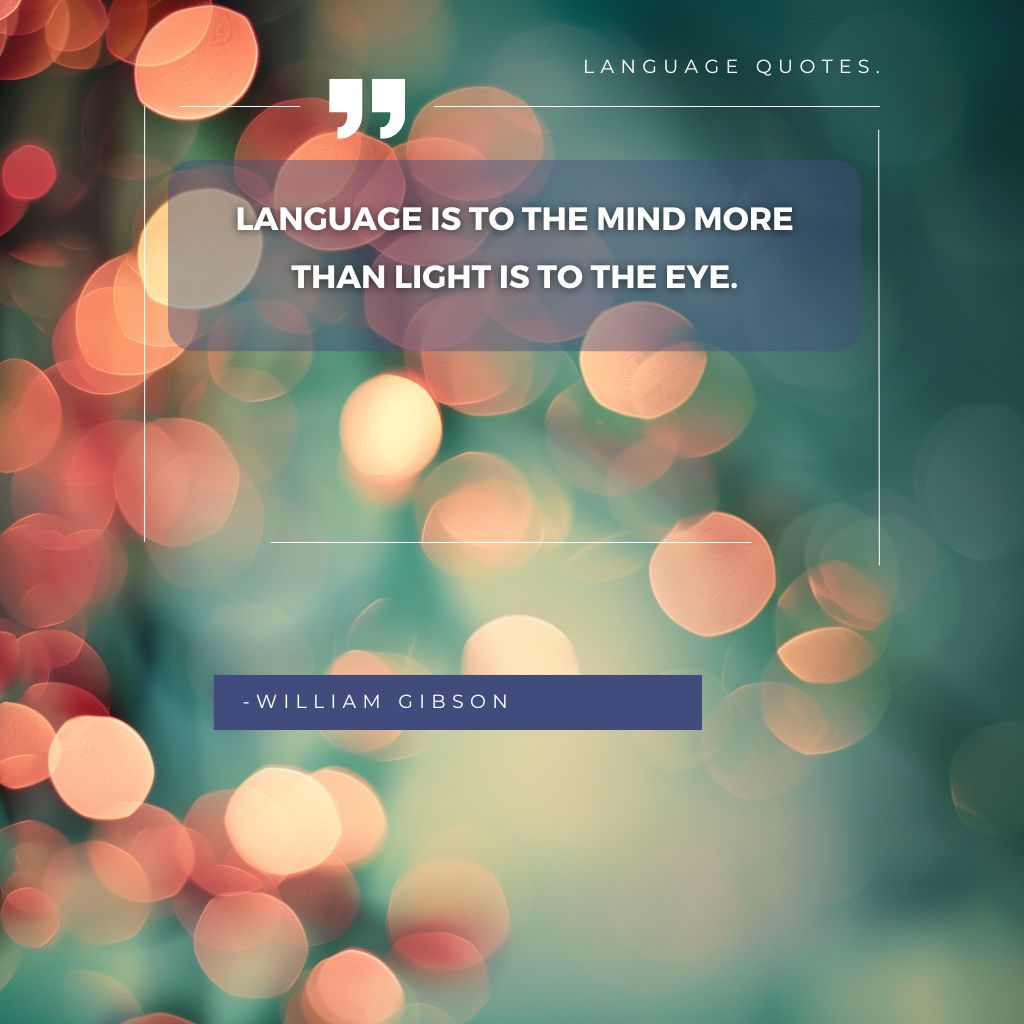Welcome Linguaholics!
In this collection of insightful quotes, prominent thinkers from various backgrounds share their perspectives on the profound impact of language. From the philosophical musings of Ludwig Wittgenstein to the transformative views of Haruki Murakami, each quote delves into how language shapes our reality, thoughts, and relationships with others.
These reflections highlight the intellectual and emotional significance of language and encourage us to consider its role as a bridge between diverse cultures and as a tool for personal and communal growth. This article invites readers to explore the depths of these ideas and appreciate language’s powerful influence on human life.
1. “The limits of my language are the limits of my world.” – Ludwid Wittgenstein
Ludwig Wittgenstein, an Austrian-British philosopher whose work significantly influenced the philosophy of language and mind, explores the intrinsic link between language and one’s understanding of the world with his insight, “The limits of my language are the limits of my world.”
2. “If you talk to a man in a language he understands, that goes to his head. If you talk to him in his language, that goes to his heart.” – Nelson Mandela
Nelson Mandela highlights the emotional impact of language by saying, “If you talk to a man in a language he understands, that goes to his head. If you talk to him in his language, that goes to his heart.” He was a South African anti-apartheid revolutionary and the first black president of South Africa, globally revered for his efforts in promoting reconciliation.
3. “A different language is a different vision of life.” – Federico Fellini
Federico Fellini expresses his belief in the transformative power of language with the statement, “A different language is a different vision of life.” He was an iconic Italian film director known for his distinctive style that blends fantasy with reality, making him one of the most influential filmmakers of all time.
4. “Language is the road map of a culture. It tells you where its people come from and where they are going.” – Rita Mae Brown
Rita Mae Brown describes language as a cultural compass in her quote, “Language is the road map of a culture. It tells you where its people come from and where they are going.” She is an American writer and an active advocate for animal rights and feminist causes, best known for her novel “Rubyfruit Jungle.”
5. “The most important things are the hardest to say, because words diminish them.” – Stephen King
Stephen King addresses the limitations of expression with his observation, “The most important things are the hardest to say, because words diminish them.” He is an acclaimed American author whose horror, supernatural fiction, suspense, and fantasy novels have sold over 350 million copies worldwide.
6. “Learning another language is not only learning different words for the same things but learning another way to think about things.” – Flora Lewis
Flora Lewis discusses the cognitive expansion of learning a new language in her quote, “Learning another language is not only learning different words for the same things but learning another way to think about things.” She was a renowned American journalist known for her insightful analysis of European affairs.
7. “That’s the thing about books. They let you travel without moving your feet.” – Jhumpa Lahiri
Jhumpa Lahiri captures the essence of literary escapism with her statement, “That’s the thing about books. They let you travel without moving your feet.” She is an American author of Indian descent whose works often explore the Indian-American experience. She has won a Pulitzer Prize for Fiction.
8. “Language is a process of free creation; its laws and principles are fixed, but the manner in which the principles of generation are used is free and infinitely varied.” – Noam Chomsky
Noam Chomsky delves into the boundless creativity of language with his quote, “Language is a process of free creation; its laws and principles are fixed, but how the principles of generation are used is free and infinitely varied.” Chomsky is an American linguist, philosopher, and cognitive scientist, highly regarded as one of the fathers of modern linguistics.
9. “Language is the blood of the soul into which thoughts run and out of which they grow.” – Oliver Wendell Holmes
Oliver Wendell Holmes emphasizes the profound connection between language and thought with his analogy, “Language is the blood of the soul into which thoughts run and out of which they grow.” Holmes was an American physician, poet, and polymath based in Boston.
10. “To have another language is to possess a second soul.” – Charlemagne
Charlemagne once said, “To have another language is to possess a second soul.” He was King of the Franks and later became Emperor of the Romans, instrumental in shaping medieval Europe’s cultural and political landscape.
11. “The single biggest problem in communication is the illusion that it has taken place.” – George Bernard Shaw
George Bernard Shaw critiques common misunderstandings in communication with his quote, “The single biggest problem in communication is the illusion that it has taken place.” Shaw was an Irish playwright, critic, and polemicist whose influence on Western theatre, culture, and politics extended from the 1880s to his death in 1950.
12. “One language sets you in a corridor for life. Two languages open every door along the way.” – Frank Smith
Frank Smith champions bilingualism with his insight, “One language sets you in a corridor for life. Two languages open every door along the way.” Smith is a contemporary psycholinguist known for his cognitive psychology and linguistics contributions.
13. “Those who know nothing of foreign languages know nothing of their own.” – Johann Wolfgang von Goethe
Goethe highlights the interconnectedness of linguistic and self-knowledge with his remark, “Those who know nothing of foreign languages know nothing of their own.” Johann Wolfgang von Goethe was a German writer and statesman whose works span the fields of poetry, drama, literature, theology, and philosophy.
14. “Every language is a temple, in which the soul of those who speak it is enshrined.” – Edward Sapir
Edward Sapir offers a spiritual metaphor for language with his declaration, “Every language is a temple, in which the soul of those who speak it is enshrined.” Sapir was an American anthropologist-linguist who played a crucial role in developing the field of linguistics in North America.
15. “Language shapes the way we think, and determines what we can think about.” – Ziad K. Abdelnour
Ziad K. Abdelnour provides a perspective on the formative power of language by stating, “Language shapes the way we think and determines what we can think about.” Abdelnour is a Lebanese-American financier and activist known for his global economics and international affairs writings.
16. “You can never understand one language until you understand at least two.” – Geoffrey Willans
Geoffrey Willans, an English author and journalist, discusses the enlightenment that comes with multilingualism in his quote, “You can never understand one language until you understand at least two.” Willans is best known for his humorous “Molesworth” series of books.
17. “Learning another language is like becoming another person.” – Haruki Murakami
Haruki Murakami reflects on the transformative experience of language learning with his observation, “Learning another language is like becoming another person.” Murakami is a contemporary Japanese writer whose deeply imaginative and philosophical novels have garnered a global following and numerous literary awards. His works often blend elements of surrealism with themes of alienation and loneliness.
18. “A special kind of beauty exists which is born in language, of language, and for language.” – Gaston Bachelard
Gaston Bachelard, a French philosopher, emphasizes the intrinsic beauty found in the essence and use of language with his quote, “A special kind of beauty exists which is born in language, of language, and for language.” Bachelard’s work focuses on the philosophy of science and the poetic imagination.
19. “Change your language and you will change your thoughts.” – Karl Albrecht
Karl Albrecht, a German entrepreneur and co-founder of the supermarket chain Aldi, highlights the profound impact of language on cognition with his quote, “Change your language and you will change your thoughts.” His insights reflect his innovative approach to business and communication.
20. “Silence is the language of god, all else is poor translation.” – Jalaluddin Rumi
Jalaluddin Rumi, a 13th-century Persian poet and Sufi mystic, conveys the spiritual significance of silence with his quote, “Silence is the language of god, all else is poor translation.” Rumi’s poetry is celebrated for its profound spiritual and mystical themes.
21.“Do you know what a foreign accent is? It’s a sign of bravery.” – Amy Chua
Amy Chua, an American lawyer and author known for her book “Battle Hymn of the Tiger Mother,” speaks to the courage required to learn and speak a new language with her quote, “Do you know what a foreign accent is? It’s a sign of bravery.” Chua’s work often explores cultural identity and education.
22. “We should learn languages because language is the only thing worth knowing even poorly.” – Kató Lomb
Kató Lomb, a Hungarian polyglot and interpreter, underscores the value of language learning with her quote, “We should learn languages because language is the only thing worth knowing even poorly.” Lomb was renowned for her proficiency in multiple languages and her advocacy for lifelong learning.
23. “Learn a language and you will avoid a new war.” – Arab Proverb
This Arab proverb underscores the idea that learning a new language can foster understanding and cooperation between different cultures, thereby reducing the likelihood of conflict.
24.“If you want people to understand you, speak their language.” – African Proverb
This African proverb emphasizes the importance of communication in fostering understanding and connection between people. By speaking another person’s language, you show respect for their culture and make it easier to bridge gaps in communication.
25.“Love has its own language, but marriage falls back on the local dialect.” – Russian Proverb
This Russian proverb highlights the difference between the idealistic and universal nature of love and the practical, everyday realities of marriage. While love may transcend cultural and linguistic boundaries, marriage often requires navigating the specific cultural and social norms of one’s local environment.
26.“Language exerts power, like the moon on the tides.” – Rita Mae Brown
Rita Mae Brown‘s quote, “Language exerts power, like the moon on the tides,” emphasizes the subtle yet profound influence language has on individuals and societies. Just as the moon’s gravitational pull affects the ocean’s tides, language shapes thoughts, behaviors, and cultural dynamics.
27. “Language is to the mind more than light is to the eye.” – William Gibson
William Gibson, a renowned American-Canadian speculative fiction writer, uses this metaphor to emphasize the fundamental role of language in shaping human thought and consciousness. Just as light is essential for vision, language is crucial for the mind’s ability to understand, communicate, and conceptualize the world.
28. “As a hawk flieth not high with one wing, even so a man reacheth not to excellence with one tongue.” Roger Ascham
Roger Ascham, a 16th-century English scholar and educator, uses this metaphor to stress the importance of multilingualism in achieving greatness. Just as a hawk cannot soar high with only one wing, a person cannot attain true excellence by knowing only one language.

Hey fellow Linguaholics! It’s me, Marcel. I am the proud owner of linguaholic.com. Languages have always been my passion and I have studied Linguistics, Computational Linguistics and Sinology at the University of Zurich. It is my utmost pleasure to share with all of you guys what I know about languages and linguistics in general.

